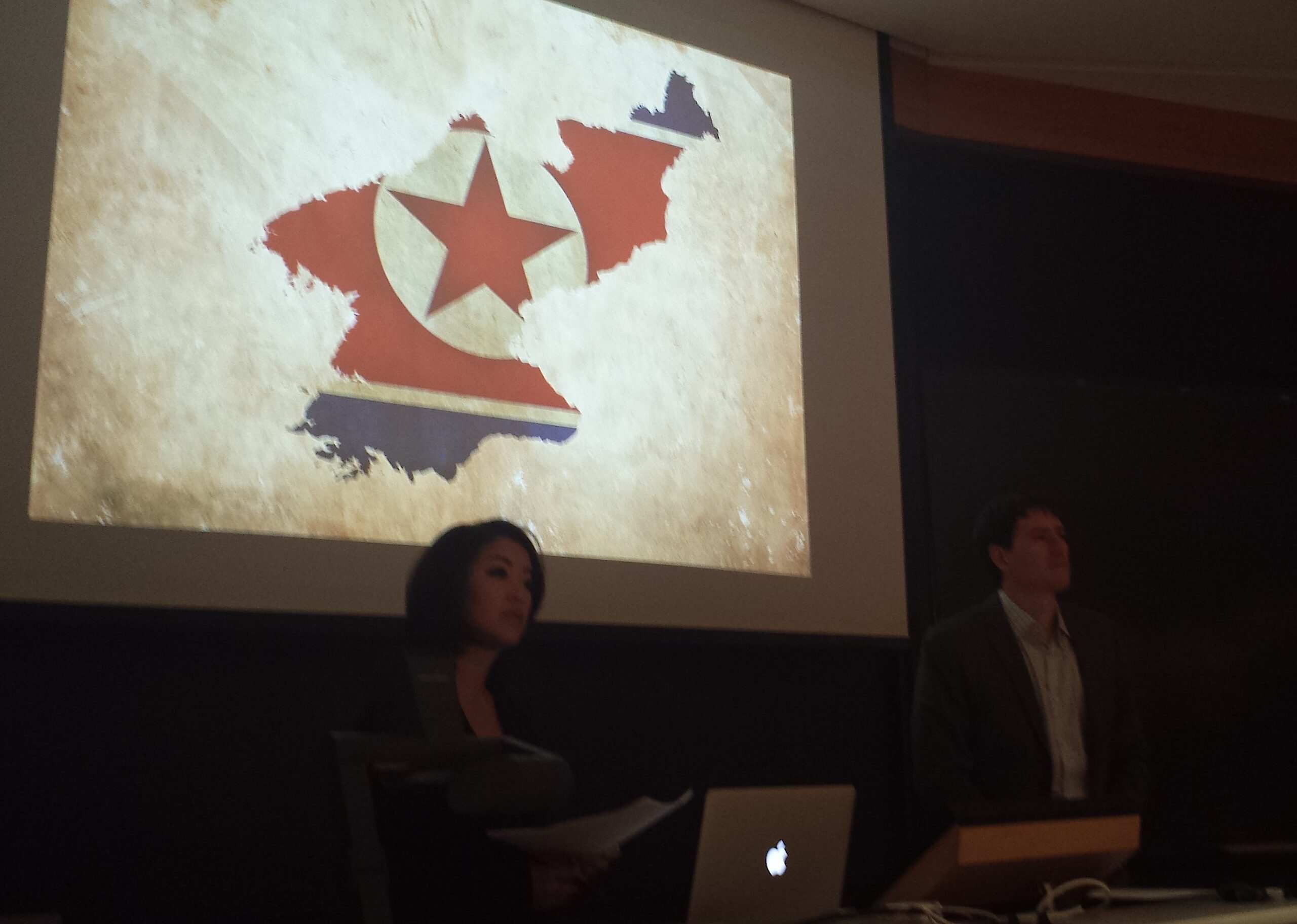The totalitarian regime of North Korea is no laughing matter. Between concentration camps, gulags, and political executions, North Korea is one of the world’s worst offenders when it comes to protecting human rights. This cultural dictatorship is home to the world’s most militarized society, yet could a raunchy American comedy bring it to its knees?
Alex Gladstein of the Human Rights Foundation thinks Seth Rogan’s “The Interview,” among other tools, could help disrupt North Korea. To that end, the Foundation has broadcast radio programs and launched balloons filled with leaflets and other materials across the South Korean border. The Foundation’s strategy seeks to empower North Korean people with information, as well as to help Western audiences become more familiar with the plight of the North Korean people.
At MIT earlier this month, Gladstein and Belfer Center Fellow Jieun Baek (MPP’14) delivered remarks and screened “The Interview” in hopes of recruiting individuals to aid HRF and other groups in delivering information and programs to the North Korean people. Both Gladstein and Baek spoke of the importance of the defector community in relaying information, remittances, and supplies to the others left behind.
According to the presenters, the Kim regime’s leaders are seen as gods among men in North Korea. The calendar starts with the Kim family patriarch’s birth, and loyalty to the regime is of paramount importance. Baek, who visited North Korea on an HKS Trek, sees some chipping away at the totalitarian regime’s control of the population. In her discussions with the defector community, she has identified that micro-social changes in behavior are pulling social capital away from the regime’s complete grip. Increasingly, young people are using South Korean slang, referencing Korean pop music, sporting haircuts previously unknown in the North. Even the official female violin troupe of North Korea now wears shorter skirts in their performances.
The near-religious beliefs inculcated in the North Korean population may be undone by even the slightest action. In the words of one young girl who defected, watching the movie “Titanic” made her aware that she was being “controlled” by the regime. Seeing the Kim family dressed down and humanized by an American may be even “more powerful than an atomic bomb,” according to another defector.
To this end, Gladstein and the Human Rights Foundation are looking for students, especially those with technical capacities, to help address the information gap between the hyperbolic teachings of the Kim regime and the lived reality for the North Korean population. Assisting the defector community in improving technological capacity is one avenue the Foundation is exploring. In August of last year, the Foundation launched a Hackathon for North Korea in the Bay Area. The defector community has adopted many of the participants’ solutions in their work.
Initially, “The Interview” may not seem like a tool for social change in one of the world’s most intractable hot spots. According to Baek and Gladstein, however, the movie is one part of a strategy to humanize the Kim regime and break down some of the existing beliefs about North Korea. Indeed, the Foundation has started smuggling the film and DVD players into the country! With the recent international incident about the film, Seth Rogan may have taught us an important lesson in Asking What You Can Do to spark social and cultural changes here and abroad.

